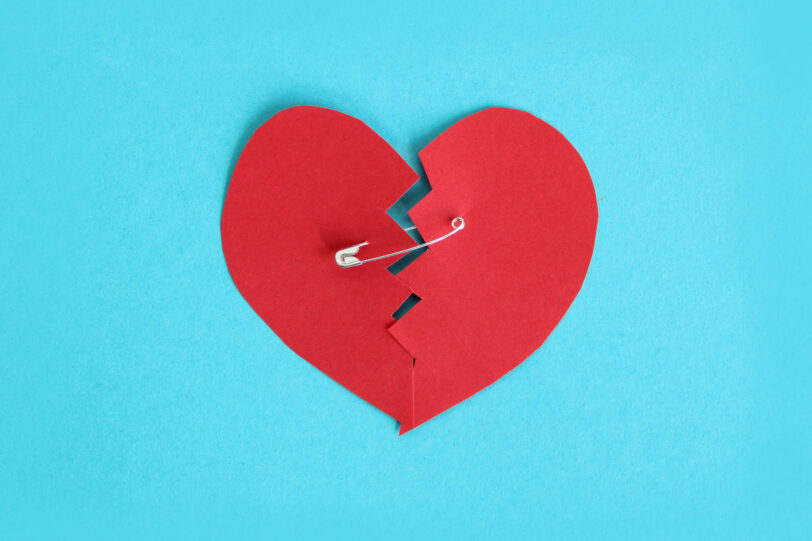
Research has shown that people who recently experienced heartbreak from a breakup experience similar brain activity compared to physical pain (Kerr, 2012).
Healing a Broken Heart
Research has shown that people who recently experienced heartbreak from a breakup experience similar brain activity compared to physical pain (Kerr, 2012). A break up can cause plenty of emotions such as surprise, confusion, and sadness. Physically, heartbreak can cause visceral experiences such as chest pain, throat tightness, and loss of appetite. There’s even a medical condition called Broken Heart Syndrome where stressful situations or extreme emotions can cause a temporary heart condition; a change in blood supply to the heart which patients have reported feeling like a heart attack (Mayo Clinic, 2016).
After a breakup, it’s natural to experience grief-related emotions and behaviors including sadness and the urge to withdraw from friends, family, and usual activities and interests. Although it’s important to have the space to mourn the loss and process emotions, it’s also imperative to avoid isolation so that it doesn’t lead to problems such as depression and anxiety.
Healing from the emotional pain after a breakup takes time. Over time, the emotional pain becomes more tolerable, a bit easier to cope with, and eventually people move forward. In the meantime, engaging in basic self-care such as exercising, staying active, eating well, getting enough sleep, staying connected to your family and/or friends, and engaging in activities you enjoy or provide comfort are important ways of minimizing the risk of heartbreak turning into a bigger mental health issue, leading to depression, anxiety, or physical illness.
Below are simple self-care reminders to help you or someone you care about through healing a break up or other type of heartache.
- Practice good sleep hygiene. Get enough sleep.
- Eat well. Maintain good eating habits.
- Drink plenty of fluids. Stay hydrated.
- Stay active.
- Exercise. Get your steps in, meet your stand goal, go to the gym, take a walk.
- Practice gentle stretching or yoga.
- Meditate.
- Get outdoors for some fresh air and sunlight.
- Balance alone time and spending time with your support system.
- Keep up with your usual activities and hobbies.
- Get plenty of rest.
- Do an activity that brings you some peace or joy such as reading, watching your favorite movie, drinking some hot tea, or listening to music.
- Practice self-compassion. Be gentle with yourself.
- Avoid self-medicating with alcohol or drugs.
- Find the lesson. Self-reflect. Ask yourself questions such as: what worked in your relationship and what didn’t and what do you want in your next relationship?
- Set a new goal to help you move forward. It could be anything! Taking a class, starting a new project, trying something new, taking a trip.
- If you’re struggling with how to cope with your heartbreak, talk to someone you trust such as a friend, loved one, or consider talking to a therapist.
If you’d like more, check this out!
https://www.ted.com/talks/guy_winch_how_to_fix_a_broken_heart?language=enhttps://www.ted.com/talks/ravinder_singh_dealing_with_a_heartbreak_from_negative_to_positive
Work Cited
Kerr, Michael. “Dealing with Depression after a Breakup.” Healthline, Healthline Media, 28 Mar. 2012, www.healthline.com/health/depression/after-break-up.
Mayo Clinic Staff. “Broken Heart Syndrome - Symptoms and Causes.” Mayo Clinic, 2016, www.mayoclinic.org/diseases-conditions/broken-heart-syndrome/symptoms-causes/syc-20354617.



